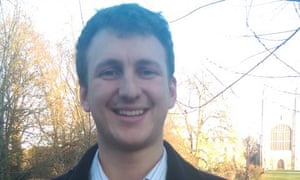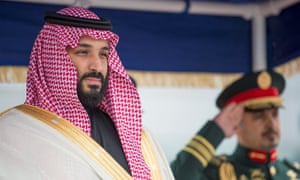As we look back on the horror of Iraq 15 years later, I wonder – would this have happened if Trump was president?
Those crossed swords in Baghdad, the rockets swooping heavenwards in the giant wall painting in his palace conference room, the military parades – they would surely have tickled the interest of the present lunatic in the White House. Kim Jong-un is Trump’s Saddam
March 25 2018
It might have been avoided. Fifteen years ago this week, we invaded Iraq. It was a criminal war. Indeed, it was a war crime. It had no UN resolutions to excuse its cruelty. It left a wealthy Arab nation in ruins and its sons and daughters dead in their hundreds of thousands. A million? A million and a half today? Who knows? Who cares? We don’t do body counts. We don’t tell the truth. It’s not that we lied. We set a new record for lying.
So surely only a Donald Trump could have spared us this tragedy. Given his own spectacular capacity for dishonesty and sheer insanity, he could have matched Saddam. Only Saddam, with his gas and nuclear ambitions and crazed self-regard could have attracted Trump. Those crossed swords in Baghdad, the rockets swooping heavenwards in the giant wall painting in his palace conference room, the military parades, the butchered family members, would surely have tickled the interest of the present lunatic in the White House. Kim Jong-un is Trump’s Saddam.
It might have been. Saddam was threatened with “shock and awe”. Which is pretty much what Trump threatened to do to Kim: “fire and fury”.
“A madman”. Isn’t that what Bush thought about Saddam? Isn’t that what Trump said about Kim? And “Mr Rocket Man”. That pretty much fits Saddam. And that’s what Trump called Kim.
No, Bush and Blair were too moral, too good, too honest, too deceitful to avoid their own crimes against humanity. They wouldn’t sit down with the “Hitler of the Tigris”. Trump might have done just that.
But we all know what happened in that pre-Trumpian age 15 years ago. The slaughter of the innocent, fire and civil war and sectarianism and executions – and torture, for let us not now forget Abu Ghraib – and then Isis, and the very firmament streamed with blood. For we must remember today – I’m setting Trump aside for a moment – how the 2003 Iraq invasion and the mass resistance to our Western aggression led directly to the foundation of a new form of Islamism. It was nurtured in the prisons and torture camps, and then, as Iraq – plundered and then left to rot in bankruptcy and corruption – broke apart, Isis gained strength from the terrible theological divide in Islam. If Saddam was Hitler, soon the US Joint Chiefs of Staff would decide (in August 2014, if you don’t believe me) that Isis was “apocalyptic”, an organisation with an “end-of-world vision”.
In the West, it’s easy to chop off Middle East events into easily consumable news cycles which have no connection to each other, bite-sized chunks of horror which distance and ignorance and lack of compassion can easily dissolve. It’s not that many years since the British Labour Party decided it was “time to move on” from the Iraq war, as if this mass butchery was just a domestic breakup, a messy divorce, a family dispute. But no one in the Middle East would understand this. The Arabs who suffer the consequences naturally see events as a continuum, one bloody event leading to another bloody result; for these tragedies do not occur in a vacuum, separated neatly by superpower invasions or threats or missile attacks or prime-time news or terror that crosses national frontiers.
Thus if the Iraq war led to Isis – which it did – so Isis crossed and re-crossed the Iraqi-Syrian frontier and brought its savagery to Syria’s civil war. Thus Raqqa begat Mosul which begat a series of towns with forgettable names – parts of eastern Ghouta, for example; Afrin. For these are also our heritage to the people of the Middle East. And if Iraq’s new Shia Muslim power naturally attracted the Iranians, so Saudi Arabia saw Iran’s hand in Yemen and we are now arming the Saudis to continue their bombing of Houthi-controlled areas of Yemen, supposedly armed by the Iranians. Another 10,000 dead.
Our weapons – to the Iraqi government and to the jihadis of Syria – ended up in Isis’s hands and as the Syrian regime wobbled, Russia arrived with its own military power. The “war on terror” – which for us began on 9/11 – morphed into the war on Afghanistan and then, with scrupulous duplicity, into the war against Saddam and then the war on Isis and now the destruction of the Kurds (our allies, remember) and a new alliance between Moscow and Nato’s largest army (the Turkish variety under the Sultan Erdogan). Forget justice. Forget dignity. Forget education. We were not interested in these desperate, justified ambitions of the people of the Middle East.
And it goes on. In Mosul this past week, they reckoned they still had more than 10 million tons of rubble to clear. Since 2013, the Iraqis have sentenced more than 3,000 prisoners to death. Since 2014, 250 accused Isis members have been hanged, a hundred of them last year alone. Detainees and prisoners in Iraq – this courtesy of both Human Rights Watch and Reuters – now number 20,000 men and women, 6,000 of them in the Nassariya prison in southern Iraq alone. This figure is of Saddamite proportions.
And our wars over the past 15 years have been too titanic to leave any place for the poor old Palestinians under the longest military occupation in modern history, so costly that we must pay our tab by selling even more billions of dollars of weapons to the Gulf Arabs to fuel the Sunni-Shia civil war. We destroy Baghdad. We destroy Mosul. The Russians help to destroy Aleppo and Ghouta. Then we destroy Raqqa. We alternately weep for the civilians of Aleppo and Ghouta and turn our shining faces from the dead of Mosul and Raqqa, and we all know the reasons why. But we are kingmakers. If we can destroy this ancient land of Mesopotamia, why, we can declare Jerusalem the capital of Israel and Theresa May can tell the world that Britain still feels “pride” in the Balfour Declaration.
So surely Trump was pre-ordained, predestined, for this shameful theatre. If he can decide who owns Jerusalem and prepare himself to talk to Kim, then he is also the might-have-been of history. Had his amoral presidency existed in 2003, he might have flown to Baghdad and chatted to the old rogue by the Tigris – and saved the Middle East. No Iraq war. No Middle Eastern bloodbath. Think about it. The real verdict on the Trump presidency could be – the man who came to power too late!
-------------------------------------------------------------------------------------------------------
My Comments ;
Had his amoral presidency existed in 2003, he might have flown to Baghdad and chatted to the old rogue by the Tigris – and saved the Middle East. No Iraq war. No Middle Eastern bloodbath.
Lovely irony from war-veteran Fisk here no doubt (for of all people, Fisk is the man with primal knowledge on the subject), for Trump would have invaded Iraq as well as Bush / Blair did, because Bush and Blair then were as addicted to the reli-colonial Tel Aviv dictate as Trump is now.
Moreover : As Trump has been completely dependent for his election on PAC funds from Jewish zionists he never would have had any choice but to declare war on all the nations that Bush and Blair signed on.
Just as Trump will )have to) deliver on attacking Iran and Libanon, in order to guarantee Tel Aviv regional hegemony

